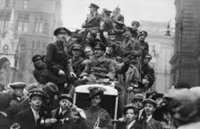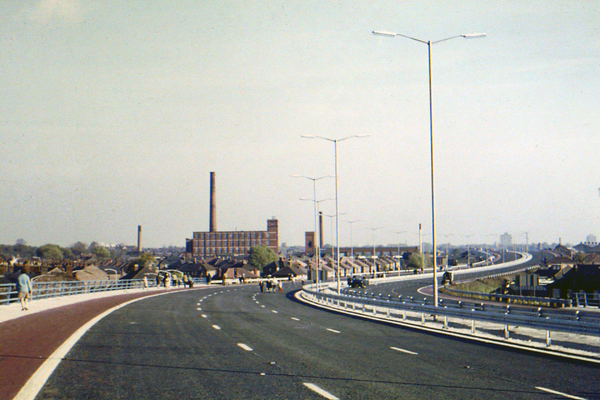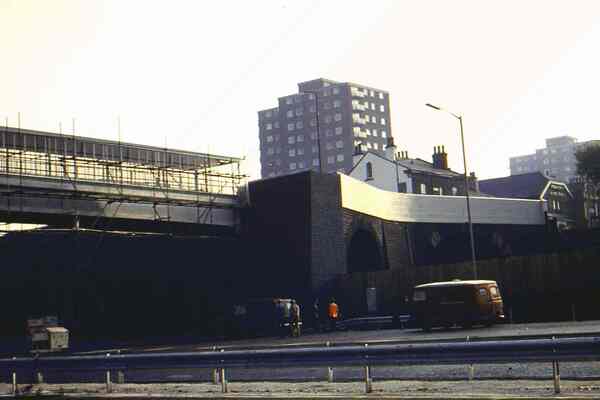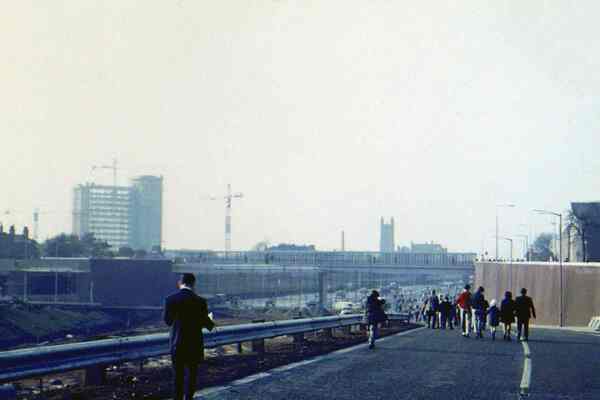
I looked through the pages of the Salford City Reporter for Monday 11th, November 1918 to see how the newspaper reported how Salford celebrated the end to this terrible carnage which had raged for over four years and had claimed the lives of over a staggering 750,000 British soldiers.
These heartbreaking losses decimated city's, towns, villages and hardly any family didn't suffer a fatality, some parents losing as many as four of their son's an horrendous statistic.
The news of the signing of the Armistice was received in Salford Town Hall by a phone call from a Manchester newspaper, most likely the Manchester Guardian at 10.30am.
The news spread like wildfire throughout Salford and within minutes flags were seen fluttering and bunting was hastily erected across streets as large crowds gathered on what was described as being a "sweet, sunny morning"
By 1pm the the people of Salford were celebrating and its worth quoting what the Salford Reporter had to say,
Quote
"As the fact became more and more impressed upon the public their feelings were strangely emotional.
"Their pent up feelings were such that at first they could not resit crying for joy - all the women did and many of the men were not ashamed to to be seen with tears rolling down their cheeks.
"Everyone congratulated everyone else, men silently gripped each other's hands and for a moment looked earnestly in each other's eyes, then with a sigh of relief exclaimed in a tone of prayerfulness and profound gratitude "Thank God it is all over".
"Happy parents could go on their way rejoicing! others alas had a different history and Monday's rejoicings only served to recall the losses they had suffered and accentuated their suffering"
The celebrations continued to spread, ships in Salford docks were hastily decorated in flags and their sirens could be heard ringing out. to add to the noise factory sirens also rang out
Workers from nearby mills and factories spilled out onto the streets in celebration, soldiers on leave and others in military blue in local hospitals were seen dancing with joy and embracing mill girls, it was reported rather coyly that,
Quote"There was no trace of roughness or horseplay, nothing of which the people could be ashamed off, left to their own devices the people made merry in in a manner that bespoke sheer joy and nothing else"
In Bexley Square the Mayor and members of the Corporation made congratulatory speeches to the crowds who thronged the Square, Salford Police Band took up their position and played a number of patriotic airs which no doubt added to the air of celebration.
A strange story I came across regards the company of Reddaway and Co a rubber works situated on Lissadel Street where the owner Frank Reddaway no doubt swept away with patriotic fervour addressed his workers thanking them for all their efforts and praised the British Army for defeating the Kaiser.
Remarkably he then added,
Quote"I can see it is no use trying to work this week, keep the joy bells ringing for the whole of the week and on Saturday I shall pay you all full wages as usual and double them!"
This was obviously met with cheers and shouts of "He's a Jolly Good Fellow" a remarkably kind gesture by him although the cynic in me suspects that he made a hell of a lot of money from the War.
Bells were rung from every church in Salford, something that was forbidden during the war years and special church services were held to celebrate an end to the war.
A war that had drained the country of generations of men,food, vital supplies, and brought heartache for what?
The Prime Minister David Lloyd George declared that he wanted to create, "a fit country for heroes to live in"
Sadly we all know how that dream ended with returning servicemen finding no work and many small business had gone, .
Local records show many cases of ex-soldiers begging or trying to make a few pennies by selling goods at unofficial street markets at the same time trying to avoid officials who wanted to close these markets down.
In all these ways, the people of Salford had to endure enormous suffering, disillusionment and a lack of dignity during and after World War One.







Recommended Comments
There are no comments to display.
Create an account or sign in to comment
You need to be a member in order to leave a comment
Create an account
Sign up for a new account in our community. It's easy!
Register a new accountSign in
Already have an account? Sign in here.
Sign In Now